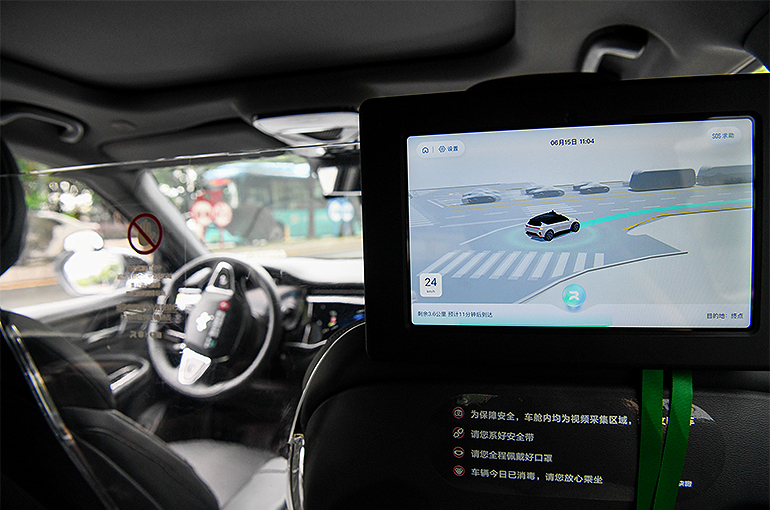 Half of New Cars Sold in China Have L2 Assisted Driving Tech, Head of China EV100 Says
Half of New Cars Sold in China Have L2 Assisted Driving Tech, Head of China EV100 Says(Yicai) July 16 -- China's auto industry has become a global leader in installed smart driving technology, with the penetration rate of new cars equipped with Level 2 assisted driving tech sold in the country exceeding 50 percent, according to the secretary-general of the China EV100.
At least one of every two new cars sold in the Chinese market has L2 assisted driving tech, Zhang Yongwei, who is also vice president of China EV100, said during an industry forum held yesterday.
The installation rate of L2 or higher-level assisted driving tech in Chinese new energy passenger vehicles topped 78 percent in the first four months of this year, while that in traditional fuel-powered passenger cars exceeded 52 percent, according to data from the China Passenger Car Association. In addition, automatic parking assist systems were installed in 31 percent of passenger vehicles and in more than 50 percent of those priced over CNY240,000 (USD33,430).
Chinese carmakers and smart driving tech companies must continue to deploy low-cost and lower-level intelligent driving tech and seize the time to accelerate the layout or installation of higher-level autonomous driving tech, Zhang noted. The two to three years from 2030 onwards will be critical for the large-scale application of L3 and L4 smart driving tech, he said.
With the start of the smart driving era, automakers should quickly make vehicle’s intelligentization and artificial intelligence technology development their core competitiveness, which will be the foundational technologies determining their survival in the industry, Zhang pointed out.
In the era of traditional fuel-powered vehicles, mechanical components accounted for 70 percent of the cost of building a car, Zhang said, adding that the proportion has dropped to less than 50 percent and will keep decreasing to around 30 percent. The share of electronic parts will gradually rise to 70 percent by 2030 from less than 25 percent, he added.
Editors: Tang Shihua, Martin Kadiev